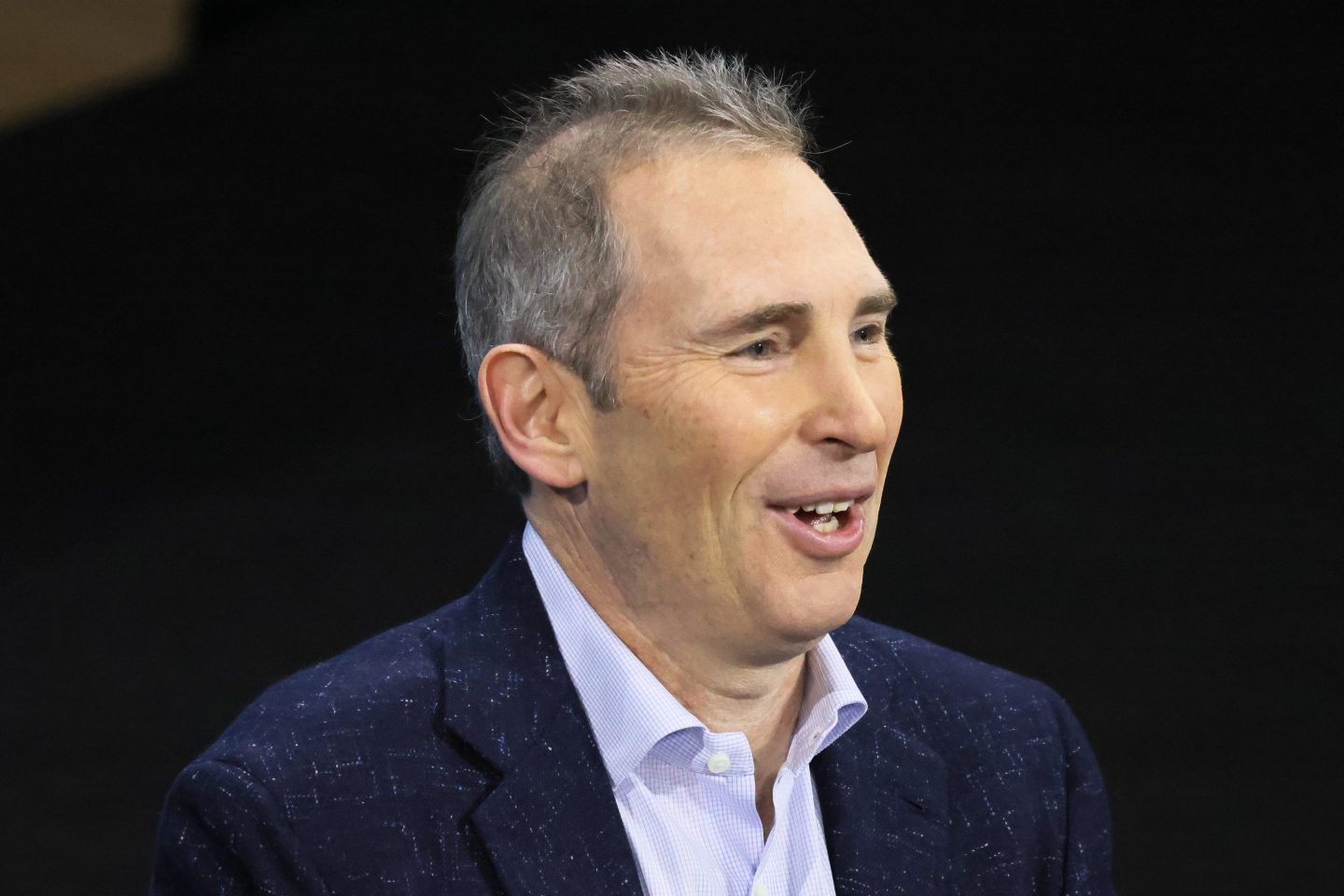Amazon CEO Andy Jassy seems to have run out of patience with remote workers refusing to come back to the office.
The return-to-office issue has been a problem plaguing some of the biggest businesses in America, with companies from Meta to Disney and Starbucks all wrestling with workers who want to hold on to their pandemic-era flexibility.
Unfortunately for Amazon’s executives, summoning staff back to the office has been particularly controversial.
And after being hit with everything from criticism to staff petitions, it seems the Amazon boss has reached the end of his tether.
In a “fishbowl” meeting earlier this month—a company name for a fireside chat—Jassy reportedly threw down the gauntlet, implying that if staff refused to come back to their desks they would not have a spot on the payroll.
“It’s past the time to disagree and commit,” Jassy said in a recording obtained by Insider. “And if you can’t disagree and commit, I also understand that, but it’s probably not going to work out for you at Amazon because we are going back to the office at least three days a week, and it’s not right for all of our teammates to be in three days a week and for people to refuse to do so.”
Amazon staff could be forgiven for their reluctance to return to their office. In September 2022 Jassy told staff he had no plans to ask them to return to their desks.
It came after a similarly relaxed message in October the year prior, when Jassy said managers would be allowed to decide how often they wanted their teams back in the building.
However, by February 2023—less than six months after Jassy said he had “no plan” to force workers back—Amazon staffers were told they’d need to be back in the office the majority of the week.
Jassy reportedly reiterated a rhetoric that has emerged in more recent months: Don’t comply with return to office, face the consequences.
In July, Insider reported that Amazon employees would be forced into a “voluntary resignation” if they refused to return unless they were one of the rare few who had obtained permission from the company’s leadership—internally named the S-team.
Amazon did not respond to Fortune’s request for comment on the latest development.
Switching positions on the “future of work”
During the meeting, Jassy reportedly said he had spoken to between 60 and 80 CEOs, “virtually all” of whom wanted their staff back in the office.
Some high-profile names have certainly changed their tune on remote work.
In May 2020 Meta CEO Mark Zuckerberg lauded the virtues of remote work, saying it would allow the business to hire talent from further afield that had previously never been accessible.
Likewise Zoom had previously been the poster child for remote work. After all, it was a tool that allowed tens of thousands of businesses to continue communicating during lockdown.
In January 2022 Zoom said less than 2% of its employees were working in the office, with Zoom’s chief financial officer, Kelly Steckelberg, telling MarketWatch: “Workers genuinely want choice, and they are choosing to continue to work at home.”
Yet at the beginning of this month, bosses at the online communication business told employees they want staff back in two days a week.
“We believe that a structured hybrid approach—meaning employees who live near an office need to be on-site two days a week to interact with their teams—is most effective for Zoom,” a spokesperson for the company said in a statement.
Unfortunately for their staff, it’s apparently at odds with what the vast majority of American employees want.
According to a Bankrate survey of 2,367 people, 89% said they wanted to work a flexible work schedule: be it a four-day week, hybrid work, or completely remote.
For Jassy’s staff, the message is clear. He reportedly said in the company meeting it was a “judgment call” he has made, and having rejected a petition signed by 30,000 employees, he shows no signs of swaying.













